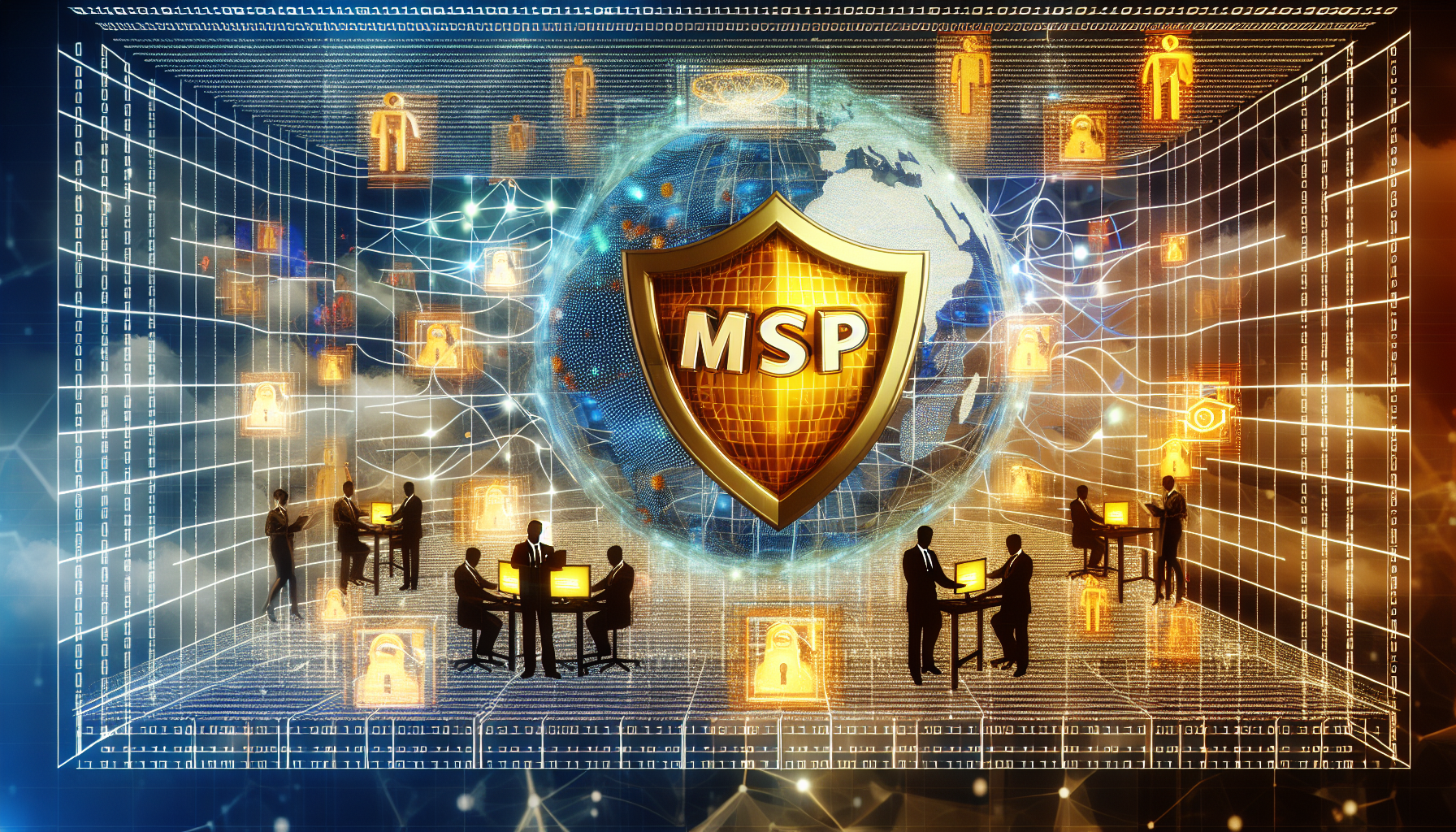In an era where cyber threats are becoming increasingly sophisticated, organizations are compelled to reevaluate their cybersecurity strategies. One prominent solution that has gained traction in recent years is partnering with a Managed Service Provider (MSP). But what exactly is an MSP, and how do they fit into the larger picture of cybersecurity?
What is a Managed Service Provider (MSP)?
A Managed Service Provider is a third-party organization that offers a range of IT services and support to businesses. These services can include network management, data backup and recovery, IT consulting, and, crucially, cybersecurity solutions. By leveraging the expertise of an MSP, companies can focus on their core business while ensuring their IT infrastructure is secure and resilient against emerging threats.
The Importance of Cybersecurity
In today’s digital landscape, the impact of cyberattacks can be devastating. Breaches can lead to data loss, financial damage, regulatory penalties, and reputational harm. Cybersecurity encompasses various strategies and tools aimed at protecting networks, systems, and data from unauthorized access and assaults.
As the complexity and volume of cyber threats continue to rise, organizations—especially small and medium-sized enterprises (SMEs)—often find it challenging to keep up with the evolving landscape. This is where Managed Service Providers come into play.
Key Roles of Managed Service Providers in Cybersecurity
1. Proactive Threat Monitoring
One of the critical functions of an MSP is 24/7 monitoring of the IT environment. They deploy sophisticated monitoring tools that constantly scan for unusual activity and unauthorized access attempts. By identifying potential threats early, MSPs can mitigate risks before they escalate into significant breaches.
2. Vulnerability Management
Managed Service Providers assess and identify vulnerabilities within an organization’s digital infrastructure. This includes regular security assessments, penetration testing, and patch management to ensure that software and systems are updated to protect against known vulnerabilities.
3. Incident Response and Recovery
In the event of a cyber incident, an MSP has established protocols for incident response. This may include isolating affected systems, eliminating threats, and implementing steps to recover lost data. Their expertise allows for a faster recovery, minimizing downtime and data loss.
4. Compliance Management
With regulations such as HIPAA, GDPR, and PCI-DSS, businesses must adhere to strict cybersecurity standards. MSPs help organizations navigate these complex regulations by ensuring their systems and processes are in compliance. This reduces the risk of fines and reputational damage associated with non-compliance.
5. Employee Training and Awareness
Human error remains one of the weakest links in cybersecurity. Managed Service Providers offer training and awareness programs to educate employees about best practices, phishing scams, and other security protocols. This empowers staff to act as the first line of defense against cyber threats.
6. Integration of Advanced Security Technologies
MSPs stay abreast of the latest technology trends and advancements in cybersecurity. They can integrate cutting-edge tools such as firewalls, intrusion detection systems, endpoint protection, and more, providing organizations with access to technology that would otherwise be cost-prohibitive.
7. Cost-Effective Solutions
Partnering with an MSP can be more cost-effective than maintaining an in-house IT team, especially for smaller organizations. MSPs offer scalable solutions tailored to meet specific needs, enabling businesses to optimize their IT budgets without compromising security.
8. Strategic Planning
An MSP helps in creating an effective cybersecurity strategy that aligns with an organization’s overall business goals. They assess risk, prioritize security initiatives, and develop comprehensive plans that guide technology investments and security practices.
The Future of Cybersecurity with MSPs
As cyber threats continue to evolve, the reliance on Managed Service Providers is expected to grow. Organizations are increasingly recognizing that cybersecurity is not just an IT issue but a critical component of business strategy. The partnership with an MSP allows companies to be more agile, responsive, and secure in the face of looming cyber threats.
Conclusion
The complexities of the cybersecurity landscape demand expertise and resources that many organizations struggle to maintain internally. Engaging a Managed Service Provider empowers businesses to safeguard their digital assets effectively, ensuring a robust cybersecurity posture. In the long term, this partnership can yield increased operational efficiency, enhanced compliance, and improved business outcomes.
FAQs
1. What types of businesses benefit from using an MSP for cybersecurity?
Both small and medium-sized enterprises, as well as larger organizations, can benefit. Smaller businesses often lack the resources to maintain a comprehensive cybersecurity strategy internally, while larger organizations may use MSPs to supplement their in-house teams.
2. How do I choose the right MSP for my business?
Look for MSPs with industry certifications, a solid reputation, experience in your sector, and transparent pricing models. It’s also beneficial to review their service level agreements (SLAs) to ensure they meet your specific requirements.
3. Are MSP cybersecurity services expensive?
While costs vary depending on the services and level of support provided, many MSPs offer flexible pricing structures, making them a cost-effective solution compared to maintaining a full-time in-house cybersecurity team.
4. Can an MSP help with compliance requirements?
Yes, MSPs typically have expertise in various regulatory frameworks and can help organizations meet compliance requirements by implementing the necessary security measures and conducting audits.
5. What happens if there is a security breach?
In the event of a breach, MSPs follow predefined incident response protocols. They quickly assess the situation, contain the threat, recover data, and communicate with stakeholders to minimize damage and restore services.
6. How does partnering with an MSP differ from traditional IT support?
While traditional IT support may address general technology issues, MSPs focus specifically on proactive management, security, and compliance, providing a comprehensive cybersecurity solution that aligns with an organization’s overall business objectives.
By understanding the multifaceted role of Managed Service Providers in cybersecurity, organizations can take proactive steps toward safeguarding their infrastructure against growing threats.


